The key to getting more Americans vaccinated against COVID-19 could be as simple as sending them text message reminders, a new study suggests.
Researchers from the University of California, Los Angeles (UCLA) tested different types of text reminders.
When people received reminders, the number of people who scheduled appointments increased by nearly 85 percent.
What’s more, texts that conveyed a sense of ownership over the vaccine were the most effective.
The U.S. has struggled to effectively administer the COVID-19 vaccine in recent months, with nearly four months of declining vaccine demand as cases rise.
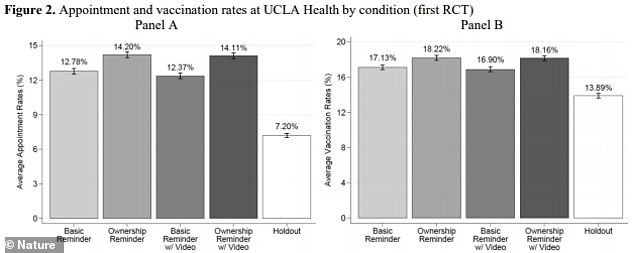
The most effective text message reminders, the researchers found, were ones that gave the recipient a sense of ownership over a vaccine dose
Researchers, who published their findings in the journal Nature on Monday, split 91,000 unvaccinated participants into five different groups.
Each group was sent one of five types of vaccination reminders the team developed.
One was a simple text reminder to get the vaccine. Another was the same reminder except it had an informational video about the safety of the vaccines attached.
The other two groups received messages that portrayed ownership over the shots.
For example, a person would receive a text that implied a vaccine shot was already reserved for them, they just needed to schedule an appointment to ‘claim’ it.
One group was sent the ownership message with the informational video, one was not.
The fifth group was not messaged at all, and used as a control.
Around 7.2 percent of patients in the control group scheduled appointments within six days, not requiring a reminder.
Patients who received a reminder were 84 percent more likely to schedule an appointment within the next six days, with 13.2 percent setting up an appointment.
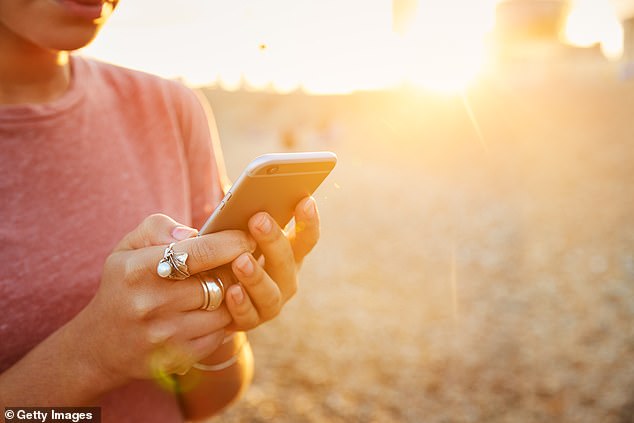
Simple text message reminders could be a simple, cheap, and effective way to boost vaccination rates
Around 14 percent of those who received an ownership reminder were likely to schedule an appointment, compared to around 12 percent of those who received a regular reminder.
Researchers also found that the videos were ineffective in getting people vaccinated, a groups with and without the videos posted the same vaccination rates.
They believe this is because the videos had relatively low click rates, and people were not even bothering to watch them.
‘I was surprised that adding an information intervention to text reminder did not yield a detectable effect on actual vaccination behaviors,’ said co-author Dr Hengchen Dai, assistant professor at UCLA.
‘It is very interesting that while a video-based intervention seems to elevate vaccination intentions in a hypothetical setting where people are asked to watch the video, this intervention does not yield benefits in the field where people are invited to watch the video and where we assess actual behavior.’
The remaining unvaccinated group – around 67,000 people – were divided into two different groups.
Eight days after the initial invite, one group received a second reminder, while the other did not.
Around one percent of people who received the reminder a second time ended up receiving the vaccine in the next six days.
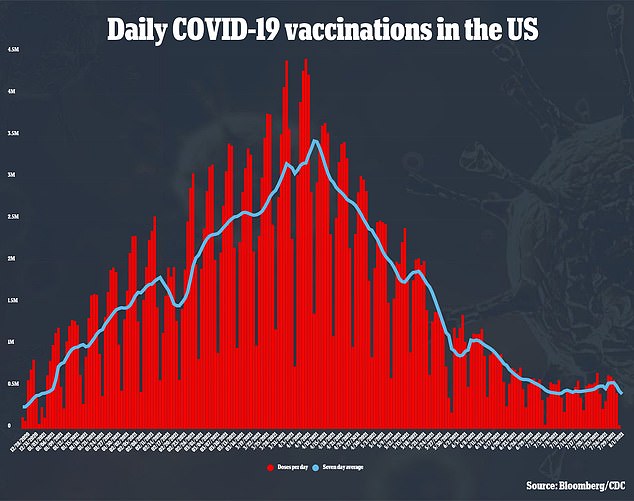
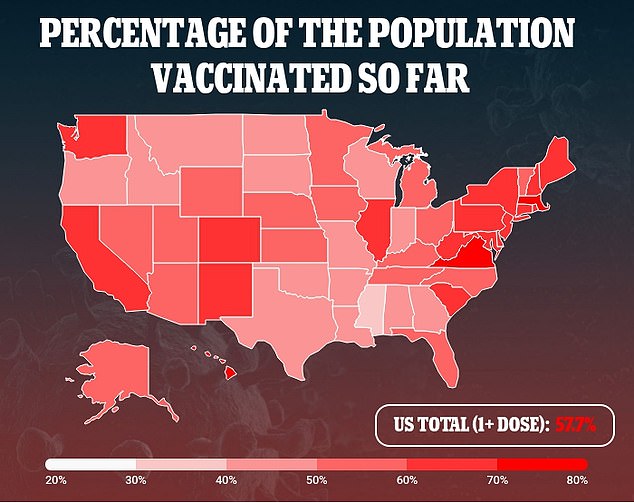
‘One simple reminder, which is cost effective, could prompt people to schedule their appointment,’ said Dr Silvia Saccardo, assistant professor in the Department of Social and Decision Sciences at Carnegie Mellon University, and contributing lead author on the paper.
‘Getting scheduled for the first does was the biggest barrier. Once scheduled, people went to the appointment and then returned for their second dose.’
These simple, yet effective, reminders could be a boon to the U.S. vaccine roll out.
After reaching a peak of around 3.5 million doses distributed a day in early April, the country’s vaccine rollout has stagnated.
As of late July, less than 500,000 doses are being distributed a day with just under 70 percent of U.S. adults having received at least one dose of a COVID-19 vaccine.
Less than half of Americans are fully vaccinated.
The large portion of unvaccinated Americans has opened the door for another summer surge of cases, as the Indian ‘Delta’ variant has caused a swell of cases nationwide.
‘The Delta variant is driving increased COVID infections across the globe, and currently in the United States more than 97 percent of COVID related hospitalizations are in unvaccinated people,’ said Dr Daniel Croymans, a Primary Care Physician at UCLA Health and co-author on the paper.
‘Our study highlights that marrying text messaging, a widely accessible technology, alongside behavioral science, may help deliver messages that encourage others to get vaccinated – helping to protect our community and our economy.
On Sunday, America recorded 25,141 new cases of coronavirus with a seven-day rolling average of 79,951, which is the highest average recorded since February 16.
It also marks a 312 percent increase from the 19,400 average recorded three weeks ago.
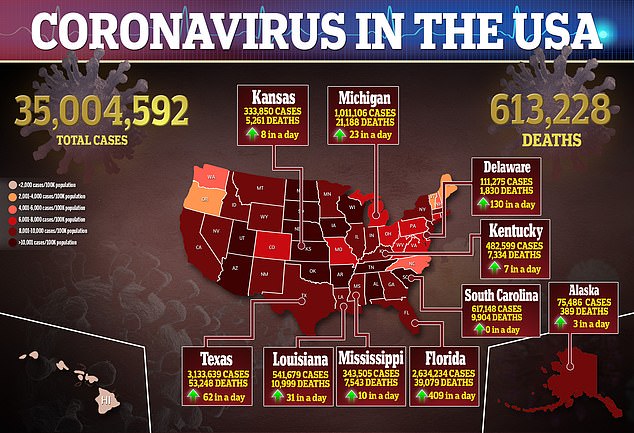
Source link : https://www.dailymail.co.uk/health/article-9852551/Sending-text-message-reminders-people-vaccinated-boosted-COVID-19-shot-rates-nearly-85.html











